Table of Contents Show
You are ready to buy an RV, but you don’t know where to start or even how much money an RV costs to own. As in everything that you can purchase, there is every price range in every model. If you have a smaller budget, there are tons of used RV’s. Or if you have a large budget, there is every new option out there. It comes down to what you are comfortable with and which style of RV do you want.
If you are looking for the lowest absolute price, the best advice is to buy used and with cash. Like any vehicle, RVs always lose value when you drive off the lot like any vehicle. So, unless you have the money to lose when you buy a $200,000 RV, you will never be able to recoup that money. Another reason to purchase cash is that the amount of interest you pay also cannot be recouped. But whatever you are comfortable with and looking for, you will find. Because there are so many options, we want to help make that decision.
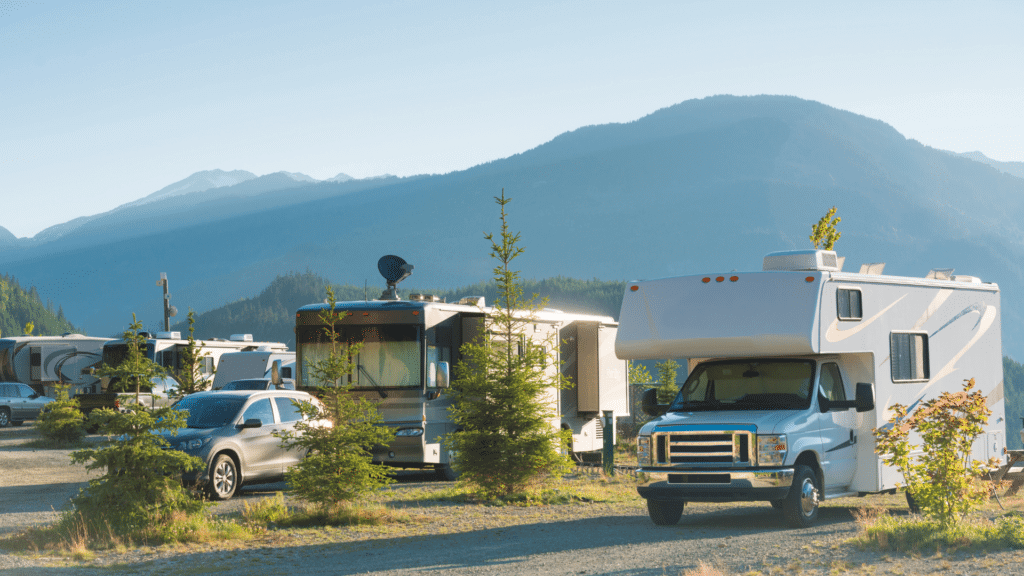
Price Range of RV Types
Once you have figured out what price range and payments you are most comfortable with, it’s time to decide which RV type you want. Each type has a very different range in price because you’re purchasing very different products. The most expensive is the class A motorhome, and your least costly is the pop-up. Again, you can find any style used probably in your price range, but these are the typical ranges for each type.
- Motorhome: $50,000 – $300,000 and up
- Fifth Wheel: $20,000 – $50,000+
- Travel Trailer: $11,000 – $35,000+
- Class C: $50,000 – $100,000+
- Class B: $60,000 – $190,000+
- Pop-Up and Hybrid: $10,000 – $20,000+
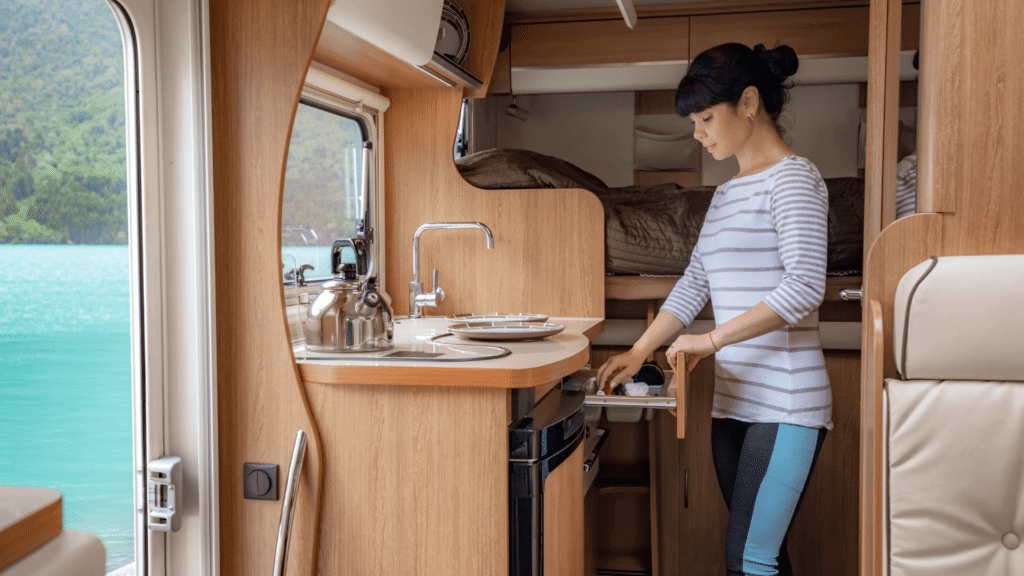
Reasons for Range of RV Cost
There are a few reasons why the range of RV costs is so vast. From the class A motorhome that comes with a whole engine and chassis to the pop-up, which consists of a whole lot less material. All these things can factor into the price of the RV. Here is a list of factors that play into the cost of an RV.
- Manufacturer: One factor is the manufacturer. Just like cars, there are more luxurious RV brands like Airstream vs Forest River. In the RV industry, it’s no different.
- Age of RV: The age of the RV plays a factor in how much it costs. If you buy a used RV, it will cost much less than a new one. Just like a car, they lose value just as fast, if not faster.
- Availability: Another factor is availability and popularity. There are some models and types that are very desirable, and because of that, they can hold their value a little more. Sprinter vans are one of those types. It’s the rules of supply and demand.
- Floor plan: Another factor can be the floor plan. Many RVs have similar floor plans, but some have a unique setup that can be more desirable—such things as two slides in the bedroom or bunk beds for kids.
- Features: The last thing that factors into cost is the features. Maybe one has a full fridge and a washer and dryer. Or perhaps one has a fireplace. Some features come standard that make a living in them more comfortable.

RV Cost of Ownership
The last thing to consider when buying an RV is the costs associated with owning the RV. These costs may include things like insurance, taxes, and regular maintenance. As it is with everything else, to keep things running, you have to maintain them. Here is a list of things to consider after you purchased your RV.
- Taxes: When it comes to owning any vehicle, there are registration fees associated with owning them. The fees on a vehicle with a motor in them will be higher than trailers without motors.
- Insurance: Costs associated with insurance also need to be factored in. You will find that things with motors and RVs that are bigger will have higher costs than the smaller ones.
- Operating: When it comes to operating costs, the bigger the vehicle, the more the costs, especially if there is an engine. Engines need to be regularly maintained and need gas. But on the flip side, the tow vehicle has the same needs—all to be factored in.
- Accessories: This one is harder to factor, but as you become comfortable with your RV, you will inevitably want to customize and add accessories. Maybe you want to add solar so that you can be off the grid. So, make sure to factor that in.
- Storage: The last thing to consider is storage. If you don’t have the space to store it on your property, you will need to put it into storage.
All these things factor into the RV cost. Don’t let it discourage you, but when you are prepared, you will be so much more relaxed when sitting by the lake. The more you can be prepared and pay for things in cash, the more fun you will have.
Get Your Free RV Buyers Guide Today!
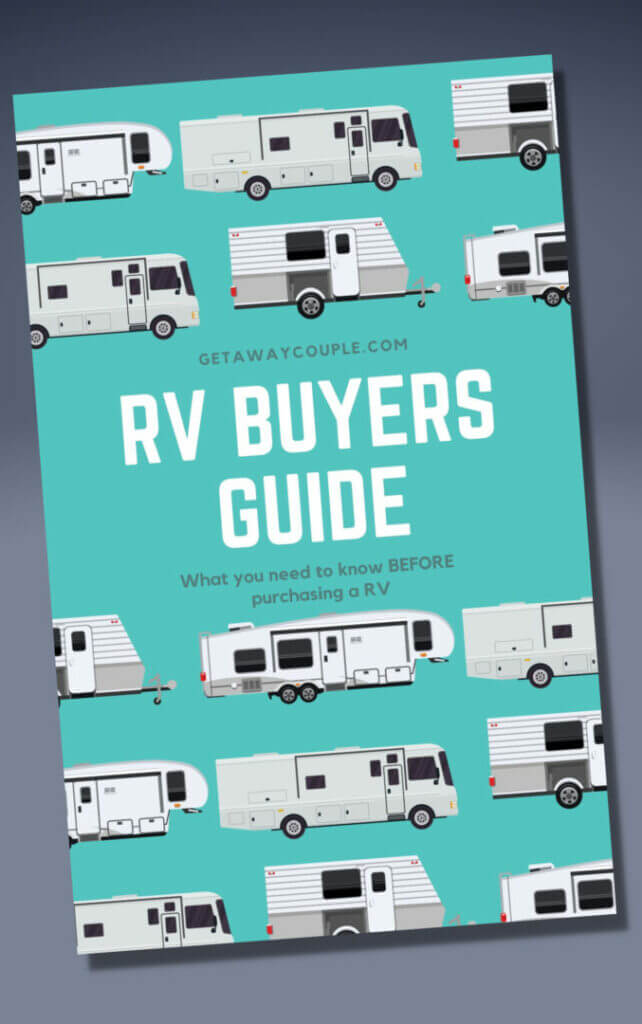
This valuable ebook will guide you step-by-step on how to purchase your first RV and save up to 30% off MSRP! Sign up for your FREE guide today!




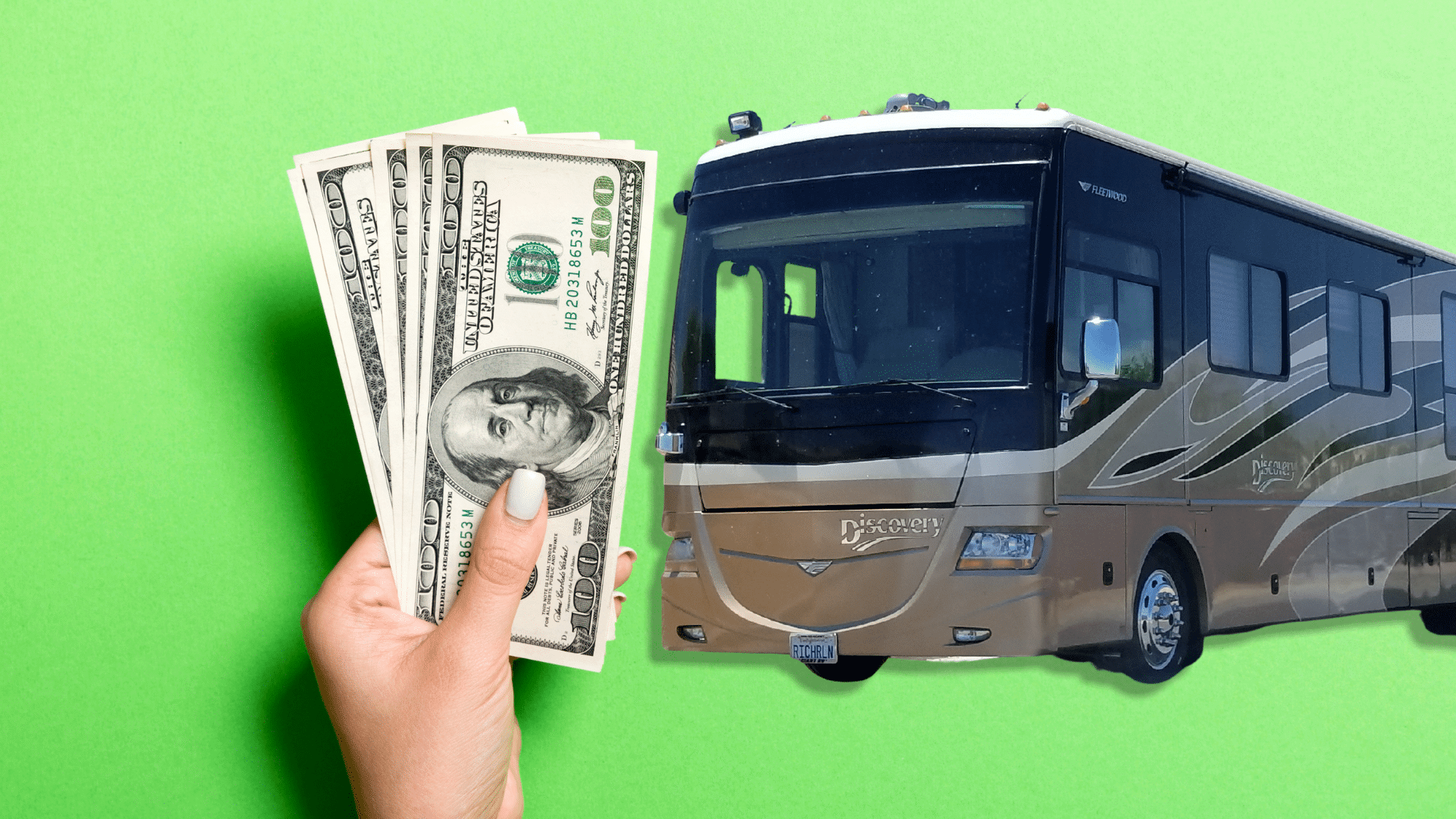
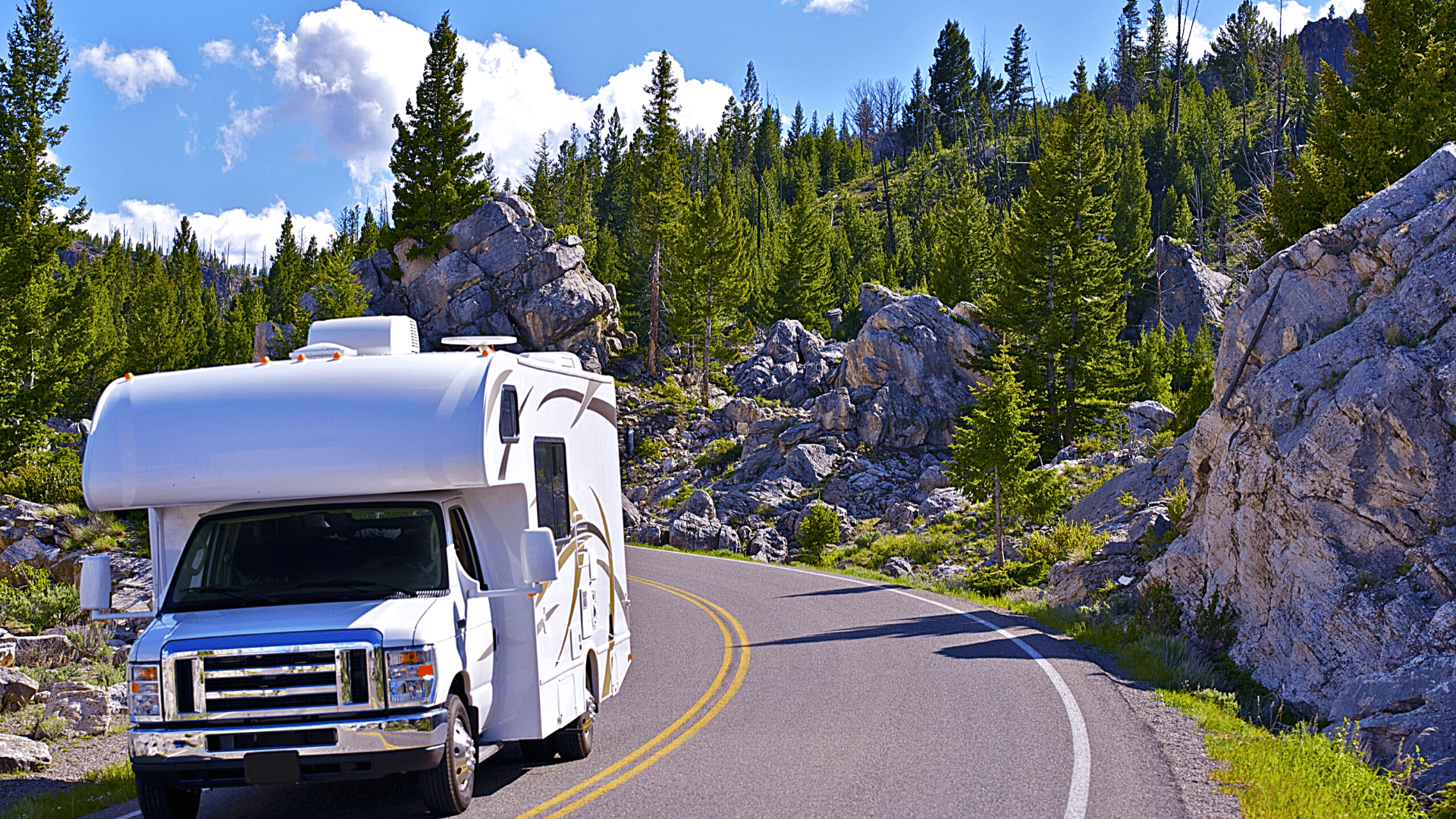

My wife and I rented a Thor Class A October 2017 to join RVing friends (1 Class A, 1 Fifth Wheel, and 1 TT) for a trip from Northern Texas to Pensacola, FL and back. This was our first RV experience and I read extensively and watched a lot of videos to educate myself about driving, parking, maintaining, etc. a Class A. After that trip, I found a 2013 Winnebago Adventurer 37F (bath and a half) for sale near Houston and we stopped by to see it when we were down that way. Going online to compare the availability of the exact same coach, I discovered a dozen identical rigs ranging in price from the $89,000 for the one here in Texas all the way up to $194,000 for one in Connecticut! In January 2018, we purchased the unit here in Texas and have been very pleased , generally, with our purchase. I replaced all six tires with new Michelins using the FMCA Advantage program saving $106 per tire. Because the coach had sat idle, for what I expected was an extended time, I had to replace the carburetor on the Onan Generator which was completely gummed up preventing it from starting. Our RV is pretty well complete having the Norcold four door refrigerator with ice maker, king bed, stacked washer and dryer (which we have yet to use), two Coleman rooftop air conditioners, three Samsung TVs and satellite TV antenna on the roof. All in all, I think we got a great buy on a moderately luxury coach at a fair price although we haven’t used it as much as we would like. We financed the purchase and the interest on the loan is deductible on our Federal income tax as a vacation home. We are paying $140/mo for covered storage with electricity which I view as protecting our investment.